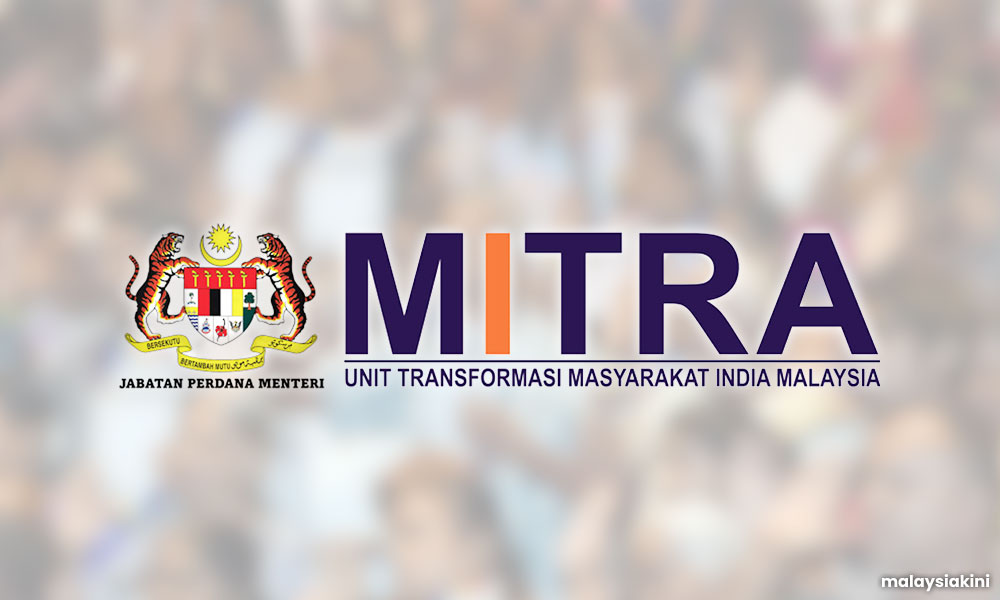MP SPEAKS | Misi: Empowering Indian youth through skills training
MP SPEAKS | The allocation of RM30 million by the Human Resources Ministry and the Malaysian Indian Transformation Unit (Mitra) to implement the Malaysian Indians Skills Initiative (Misi) is a step in the right direction.
Misi seeks to upskill Indian youth in critical areas to meet both industrial and national needs. This will allow for more effective matches between jobs and skills, facilitating employment for Indian youth and productivity for industries.
Thus, the government’s effort towards uplifting the Indian community, in particular its youth, through Misi is most certainly a welcome move and worthy of commendation.
However, in implementing Misi, there are a few matters that must be placed at the forefront of our policymakers’ minds.
Accessibility
To ensure accessibility of all Indian youth to the skills programmes that will be implemented under the auspices of Misi, there must be clear guidelines set by Human Resources Ministry-Mitra on entrance qualifications, application procedures, and if any additional fees are payable. The application process must be straightforward and transparent.
Applicants should be able to have a clear understanding of eligibility criteria and the process to apply for the programme. Keep it simple. Keep the bureaucracy at bay.
With these criteria being set, instead of by the organisations that will be implementing the programmes, accessibility to the training can be enhanced whereby more youths will be able to participate and drive benefit from them. The said criteria can be made public so anyone can access and know them.

A dedicated complaints mechanism to Human Resources Ministry-Mitra can also be set up to channel complaints on non-compliance with these criteria by implementing organisations or where applicants are unable to gain entry to the skills programmes. This will allow for effective monitoring and action to be taken in the event of non-compliance with the criteria set.
Integrity, transparency and accountability
To ensure integrity, transparency and accountability, there must also be a transparent and accountable process of grant distribution to organisations that will be implementing Misi training.
There must be sufficient safeguards in place where comprehensive audits and background checks must be conducted by Human Resources Ministry-Mitra to ensure that the organisations proposing to conduct these programmes are legitimate and that the programmes are indeed being implemented to train Indian youth.
Lessons learned from the distribution of Mitra grants in the past must serve as guidance. A good reform in this regard would to be publicly publish a comprehensive report on the use of the funds including details of which organisation has implemented it, who runs the organisation, what programmes were run, and how many youths were trained.
Additionally, a detailed timeframe for disbursement of the RM30 million fund is also equally important. The entirety of the money must be spent on skills training programmes to ensure as many Indian youth as possible can benefit from the same.
There must not be a scenario where the funds are unused and returned to the Finance Ministry. Such would be unacceptable. The RM30 million has been allocated and must be completely used.
Monitoring outcome
A mechanism to monitor the outcome of Misi must be established.
There must be a system put in place to record and collect data on how many graduates of these skills training programmes are employed upon graduating, who employs them, the timeframe for gaining employment, the pay received, if the training received meets industry needs, and most importantly, if the training has in fact uplifted the graduate socioeconomically.
A similar monitoring system is being practised by the Higher Education Ministry at present. It is called the Higher Education Ministry Malaysia Graduates Tracer Study. Human Resources Ministry-Mitra can emulate this.
Further, there must also be clear achievement aims set for Misi programmes. These targets should be measurable and aligned with the Human Resources Ministry's 3K aspirations - enhancing skills, success, and welfare of workers. It must set out aims such as what skills participants should gain, how many participants are to benefit and which industries are to be prioritised for skills training.
Skilled workforce
A skilled worker can and will be paid a better and more competitive salary. Moreover, skilled workers will also enjoy greater mobility in moving upwards within the labour market.

At present, only about 29.6 percent of the workforce in Malaysia have some form of skilled qualification. In comparison, nearly 60 percent of Singapore’s workforce is skilled. The 12th Malaysia Plan Mid-Term Review has aimed for a 35 percent increase in the number of skilled workers in the country by 2025.
Many Indian youths are uncertain about their career paths. Misi can thus serve as a guiding light, helping them train themselves to be skilled workers and in a position to increase their income once they acquire essential skills.
By emphasising technical and vocational education and training (TVET), skills gaps can be bridged to prepare Malaysians for jobs of the future, including within artificial intelligence and cybersecurity roles.
Misi is, therefore, a crucial initiative toward a more skilled workforce, and I truly look forward to its successful implementation.
Tip of the iceberg
While Misi is laudable, it is hoped that this RM30 million allocation is only an initial investment by the government in Indian youth. The Indian community stands to benefit significantly from skills training and resultantly there must be more financial support in the future towards this cause.
When discussing Misi, one cannot ignore the other initiatives the Madani government has formulated to benefit the Indians.
This includes RM100 million to Mitra for socio-economic development programmes, RM50 million through Amanah Ikhtiar Malaysia to empower Indian women entrepreneurs, and RM30 million under the National Entrepreneurial Group Economic Fund (Tekun) to provide fast and easy micro-financing facilities to Indian entrepreneurs.
It is hoped that more such initiatives will be formulated to benefit the Indian community in Malaysia.
In recognition of the above, let us work together to craft a brighter future for the Indian community and a more prosperous and inclusive Malaysia - our home.
M Kula Segaran is Ipoh Barat MP.
The views expressed here are those of the author/contributor and do not necessarily represent the views of Malaysiakini.
Please join the Malaysiakini WhatsApp Channel to get the latest news and views that matter.
RM12.50 / month
- Unlimited access to award-winning journalism
- Comment and share your opinions on all our articles
- Gift interesting stories to your friends
- Tax deductable
